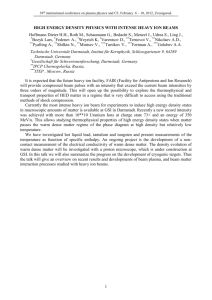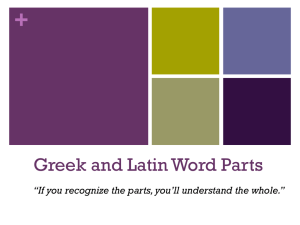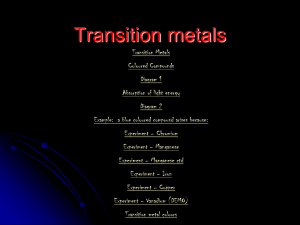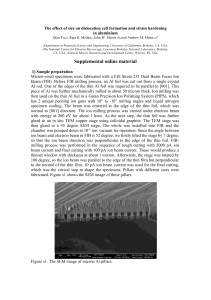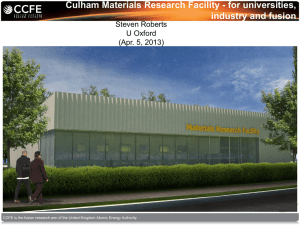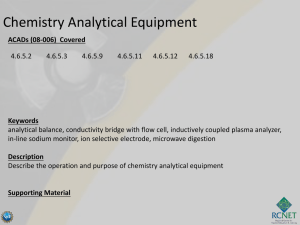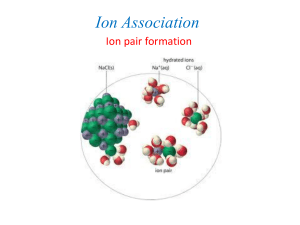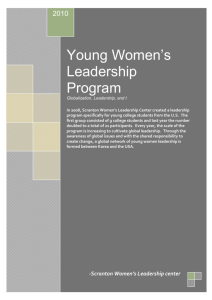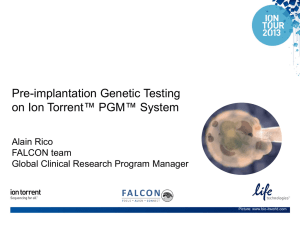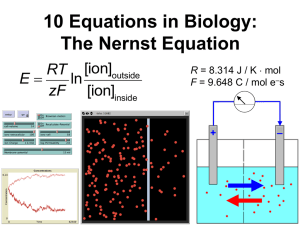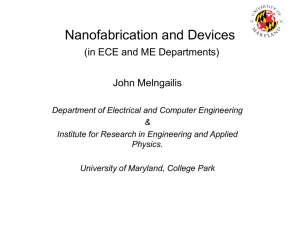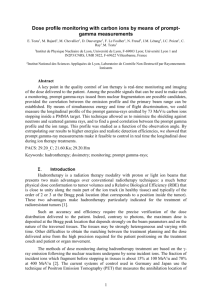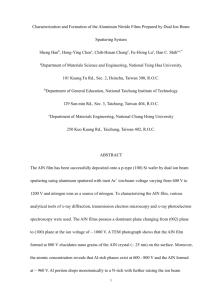before 2013-10-07 - IFM
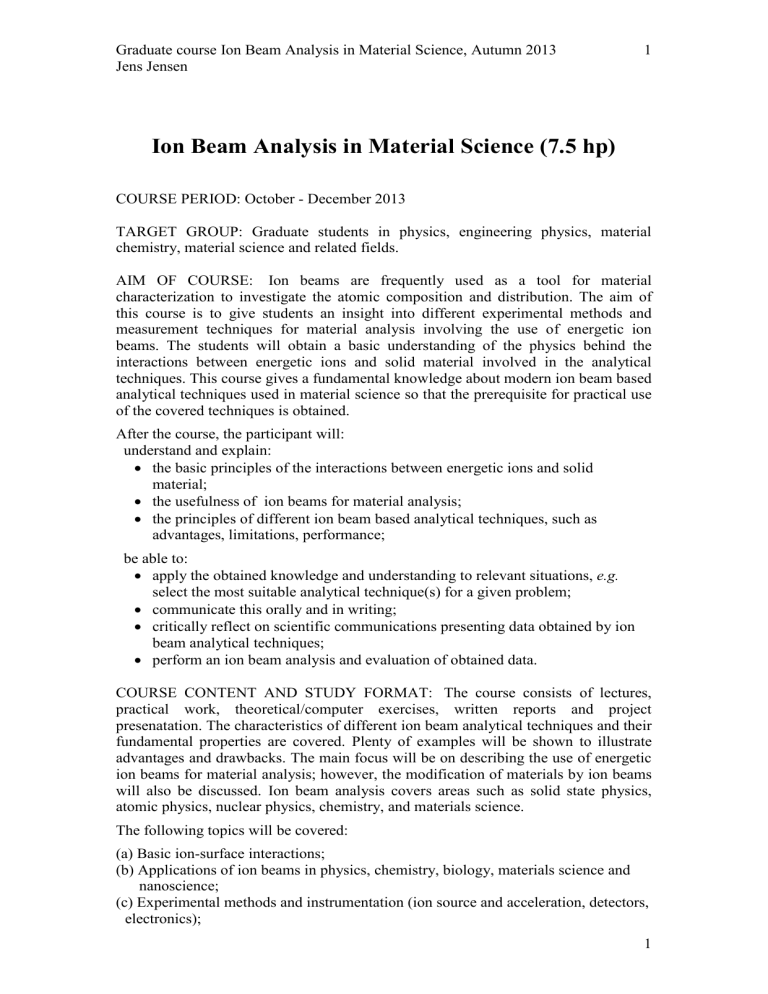
Graduate course Ion Beam Analysis in Material Science, Autumn 2013
Jens Jensen
1
Ion Beam Analysis in Material Science (7.5 hp)
COURSE PERIOD: October - December 2013
TARGET GROUP: Graduate students in physics, engineering physics, material chemistry, material science and related fields.
AIM OF COURSE: Ion beams are frequently used as a tool for material characterization to investigate the atomic composition and distribution. The aim of this course is to give students an insight into different experimental methods and measurement techniques for material analysis involving the use of energetic ion beams. The students will obtain a basic understanding of the physics behind the interactions between energetic ions and solid material involved in the analytical techniques. This course gives a fundamental knowledge about modern ion beam based analytical techniques used in material science so that the prerequisite for practical use of the covered techniques is obtained.
After the course, the participant will:
understand and explain:
the basic principles of the interactions between energetic ions and solid material;
the usefulness of ion beams for material analysis;
the principles of different ion beam based analytical techniques, such as advantages, limitations, performance;
be able to:
apply the obtained knowledge and understanding to relevant situations, e.g. select the most suitable analytical technique(s) for a given problem;
communicate this orally and in writing;
critically reflect on scientific communications presenting data obtained by ion beam analytical techniques;
perform an ion beam analysis and evaluation of obtained data.
COURSE CONTENT AND STUDY FORMAT: The course consists of lectures, practical work, theoretical/computer exercises, written reports and project presenatation. The characteristics of different ion beam analytical techniques and their fundamental properties are covered. Plenty of examples will be shown to illustrate advantages and drawbacks. The main focus will be on describing the use of energetic ion beams for material analysis; however, the modification of materials by ion beams will also be discussed. Ion beam analysis covers areas such as solid state physics, atomic physics, nuclear physics, chemistry, and materials science.
The following topics will be covered:
(a) Basic ion-surface interactions;
(b) Applications of ion beams in physics, chemistry, biology, materials science and
nanoscience;
(c) Experimental methods and instrumentation (ion source and acceleration, detectors, electronics);
1
Graduate course Ion Beam Analysis in Material Science, Autumn 2013
Jens Jensen
2
(d) RBS (Rutherford Backscattering Spectrometry) and Channeling;
(e) MEIS (Medium Energy Ion Scattering) and LEIS (Low Energy Ion Scattering);
(f) ERDA (Elastic Recoil Detection Analysis);
(g) NRA (Nuclear Reaction Analysis);
(h) Sputtering and sputter depth profiling techniques;
(i) SIMS (Secondary Ion Mass Spectrometry);
The course is given in the form of 12 lectures (2x45 min. each), which will give the basic theoretical background and concepts behind the different ion beam analytical techniques. However, it is expected that the student spend additional time for selfstudies. To check the understanding, a number of theoretical hand-in exercises are given. There will be a visit to the Tandem Laboratory at Uppsala University where the student will obtain hands-on experience with e.g.
RBS by analysing research samples.
At LiU the student will have the possibility to obtain experience with TOF-SIMS for surface and thin film analysis. Reports have to be written on the practical work. The course will end with a final seminar where students present individual projects.
LITERATURE: The course literature will mainly consist of lecture notes, research articles and other hand-outs.
EXAMINATION: The examination will be based on the following assessment task:
Hand-in exercises.
Laboratory work with written reports (group activity).
A final project. The final project is an individual task chosen within course subject and will include: a written report, seminar presentation of project, and peer evaluation of a colleague’s work.
FURTHER INFORMATION and CONTACT PERSON:
Jens Jensen, Department of Physics, Chemistry and Biology (IFM), Thin Film
Physics Division, Linköping University, SE-58183 Linköping.
E-mail: jejen@ifm.liu.se, Phone: 013- 28 89 26, Room G406
Interested students should send an application to me before 2013-10-07
2
Graduate course Ion Beam Analysis in Material Science, Autumn 2013
Jens Jensen
3
3
